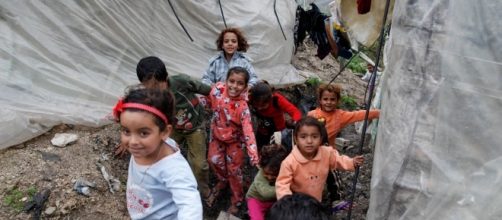In the five years that have passed since the start of the crisis in Syria, it remains the single greatest threat to peace and stability in the world today. But it is those who have been caught up in the civil war that have suffered the most; that is the ordinary civilians. Although there has been a ceasefire agreed between the parties to allow civilians to leave Aleppo, the question that remains is, how do we solve the huge humanitarian crisis for good as the war continues on?
Background to the conflict
Let us provide some background to the crisis itself.
The conflict began in 2011 after pro-democracy protests against the rule of President Assad, according to the BBC, escalated into full-on conflict. It was originally between supporters of the government and those opposed. But it has become a complex situation, one which the BBC stated was "now more than just a battle". As civil war descended, other parties emerged in the conflict. The alignment of Sunni and Shia parties, and the emergence of the terror group, the Islamic State (IS), is testament to that. It is the emergence of IS that has caused most concern within the international community and has, as a result, led to foreign intervention. The BBC reported that in September 2014 that a United States (US)-led coalition was launched to "degrade and ultimately destroy" IS.
Although at times on opposite sides of the conflict, Russia too has intervened to target "terrorists" in Syria.
The humanitarian crisis
But this is where the problem lies. As the civil crisis has descended into full scale war, in ultimately trying to destroy the Islamic State and emerge victorious, it is those on the ground who have suffered the most; the civilians. In addition to war crimes, it is the humanitarian crisis that has been the major consequence of battle. In the key city of Aleppo, there were estimated to be 250,000-300,000 civilians trapped in August of this year. Now although as stated a recent ceasefire was agreed between the parties, what has occurred overall in Syria is still a major cause for concern as the statistics demonstrate.
As stated on Wikipedia, in January 2015, of the estimated 212,000 people that month who were affected by the battle, only 304 were reached with food. Furthermore, since the start of the conflict, the BBC noted that more than 4.5 million people have fled Syria and a further 6.5 million are internally displaced. However, most notably, around 70 percent of the population are without drinking water, one in three people are unable to "meet their basic food needs", and four out of five people are living in poverty.
The solution to the crisis
It seems that as the war has escalated, the civilians are the ones who are suffering the worst. They need help, the foreign powers need to recognise this and do a lot more.
The Islamic State is the major threat to the global community, but let us not forget those caught up in what is going on. It is positive sign that the ceasefire was agreed in Aleppo, but going forward, it has to be the first thought of the parties involved in the conflict. Look after those in the war, and not just those fighting the war.

